I Didn't Know There Were Arguments Against The Germ Theory.
The primary cause of a disease is not germs. A disease is caused by Toxemia which results in cellular impairment and breakdown, thus paving the way for multiplication and onslaught of germs. Dr. Henry Bieler, Food is your best medicine.
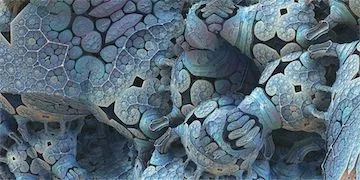
Germs are involved in the disease process but not the cause of disease. Numerous scientists have questioned that they are the cause of disease. Especially when healthy people are host to the very disease that is supposed to cause illness, and they are perfectly healthy.
All living things have a symbiotic part in the play in Natural systems. The science of Ecology states that all forms of life are integrated components of a global ecological system, This statement does not make sense when you question the role of a germ that makes us sick. Nature is about symbiotic relationships and balance. Why would a germ cause illness and imbalance and kill its host and home? What is the germs role within the host? Do germs have a role to play in our body that has nothing to do with disease? Or is a germ a preditor, a parasite that will eventually kill its host? Why would anyone want to burn down their comfy home? Are germs crazy? I don't want to piss off anyone, well maybe I do but not in a mean way. If you do get riled up over my articles I am not responsible for your emotions, you are! In fact, I had no clue there were opposing views on the germ theory, and this is why I am writing this article.
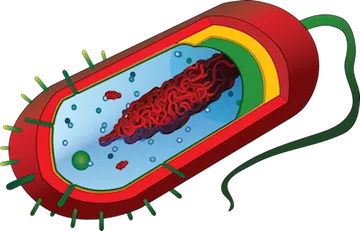
Every living organism requires specific conditions and the environment to live and thrive. The science of Biology states living organisms requires their specific requirements and a congenial environment, the right temperature, and proper nutrition. A germ, virus or bacteria is a living organism. The conditions needed for viruses and bacteria to thrive are darkness, moister, humidity, and a medium made up of rotting matter. So it fits the germs role in nature is to break down organic waste that is decomposing. This cycle is part of natures life cycle breaking down dead matter to its essential elements. Germs are like are our bodies scavengers. Without these tiny scavengers the break down of dead matter, life would be impossible, and the cycle of life would be broken. Professor Rene Dubos is an amazing person, and I am going to read more of his research, I like his views on balanced relationships between host and parasite and ecology in general.
Professor Rene Dubos has written:
Should any component of organic life remain undestroyed and be allowed to accumulate; it would soon cover the world and imprison in its inert mass the chemical elements essential to the activity of life…Microbes are responsible for the constant recycling of matter to simple molecules and back into living substances … the whole economy of nature, and therefore man’s welfare depends on the beneficial activities of microorganisms.
An example of the germ’s role within eco-systems is our garden’s compost pile. Bacteria in the soil break down rotting vegetable matter into our soil to feed the next cycle of life.
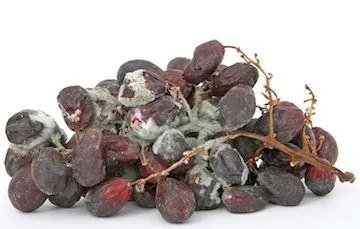
The germs role in nature also applies to the germs role within our bodies eco-system. A germ within the body’s eco-system is to break down organic wastes which are putrifying and decaying. PDF Link: R.B. Pearson in his book Pasteur, Plagiarist, Imposter, wrote:
Bacteria found in man and animals do not cause disease - they have the same function as those found in the soil, or in sewage or elsewhere in nature; they are there to rebuild dead and diseased tissue or rework body wastes, and it is well known that they will not and cannot attack healthy tissues.
George Teasdale who wrote "Nature Heals! Why Be sick?" has written:
These organisms (germs) live, multiply and thrive only in tissue encumbered with toxic matter from injudicious eating, poisons from stagnant bowels, acids from unbalanced foods, drink and drug poisons, morbid taints, and various disease products in the form of vaccines, serums, and antitoxins … germs reduce dead and dying organic matter back to its inorganic constituents suitable again as nourishment for plant life.

Dr. Alexander Ross, Professor of Hygiene and Sanitation, has written:
I charge that they (medical men) have encouraged superstition and hung by the germ theory of disease. I do not question the existence of infinitesimal microorganisms, but they are the result not the cause of disease. They are scavengers; their legitimate work is to clean out the sewers of our bodies. Whenever there is decay, pus or decomposing matter these little life-savers are doing their work of neutralization, sanitation, and purification. They feast upon effete decaying animal matter. They are beneficial helpers to an important end.
Eleanor McBean wrote in “The Poisoned Needle states:
When germs are found within a sick body, it is not that they entered from the outside and caused the disease. It is because they developed from the decaying cells within the body and had an important part to play in helping handle the waste and destruction brought about by serums, drugs, and other poisoned forced upon the body without.
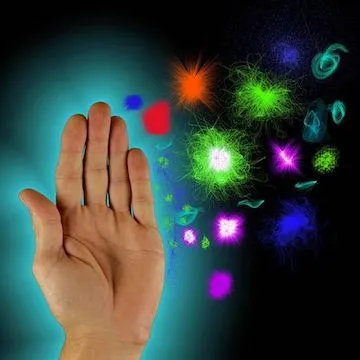
Louis Pasture first started investigating germs in 1860. His initial research worked followed the writings of Professor Antoine Béchamp, a Frenchman, and distinguished scientist. He was a Master of Chemistry and Pharmacy, professor of Physics and Toxicology, a Professor of Sociological chemistry. He spent 53 years research from 1853-1906, and he died in 1908. Beauchamp throughout his career stated germs were not the first cause of disease. Rather germs grew from organic waste. In 1883 Beauchamp said:
These microorganism feed upon the poisonous material which they find in sick organism and prepare it for excretion. These tiny organisms are derived from still tinier organisms called microzyma. These microzymas are present in the tissues and blood of all living organisms where they remain normally quiescent and harmless. When the welfare of the human body is treated by the presence of potentially harmful material, a transmutation takes place. The microzyma changes into a bacterium or visors which immediately goes to work to rid the body of this harmful material. When the bacteria or viruses have completed their task of consuming the harmful material they automatically revert to the microzyma stage.
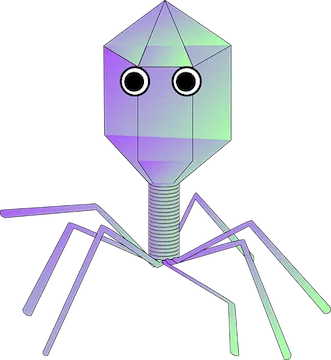
A famous contemporary of Louis Pasteur, Frenchman, and physiologist, Claude Bernard, was awarded Senator of the French Empire by Imperial decree for his work in physiology. Bernard introduced the “milieu interior” which claimed that the germ was not the cause of disease but that the terrain was the most important factor. Bernard referred to the internal condition of the body as the “milieu interior” or “terrain, the condition of the patient’s body was the main reason for the cause of disease. Bernard has written:
Illnesses, hover constantly above us, their seeds blown by the wind, but they do not set in the terrain unless the terrain is ready to receive them.
Pasteur and Bernard had many debates over their opposing concepts. Pasteur had to admit that he had been wrong. Pasteur agreed that germs were not the first cause if disease, Pasteur acknowledged that the condition of an infected person's body was the cause of disease. Rene Dubos , who wrote the Pasteur’s biography stated:
All the activities of microbes are conditioned by the environmental factors under which they function and that the severity of infectious disease is determined not only the virulence of the microbe but also by the general condition of the infected person.
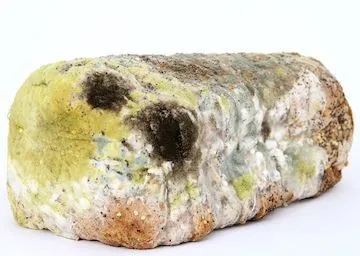
Louis Pasteur’s germ theory still rules our science models today and is the bases for our vaccine manufacturing, practices, and programs. Pasteur stated just before he died:
The seed (germ) is nothing, the soil (body) is everything.
Another Biographer quoted Pasteur's Last words: Here is what Pasteur's biographer, one with a real name, had to say:
Pasteur's strength diminished day by day, he now could hardly walk. When he was seated in the Park, his grandchildren around him suggested young rose trees climbing around the trunk of a dying oak. The paralysis was increasing, and speech was becoming more and more difficult. The eyes alone remained bright and clear; Pasteur was witnessing the ruin of what in him was perishable.
How willingly they would have given a moment of their lives to prolong his, those thousands of human beings whose existence had been saved by his methods; sick children, women in lying-in hospitals, patients operated on in surgical wards, victims of rabid dogs saved from hydrophobia, and so many others protected against the infinitesimally small! But, whilst visions of those living beings passed through the minds of his family, it seemed as if Pasteur already saw those dead ones who, like him, had preserved absolute faith in the Future Life.
The last week in September he was no longer strong enough to leave his bed, his weakness was extreme. On September 27, as he was offered a cup of milk: "I cannot," he murmured; his eyes looked around him with an unspeakable expression of resignation, love and farewell. His head fell back on the pillows and he slept; but, after this delusive rest, suddenly came the gaspings of agony. For twenty-four hours he remained motionless, his eyes closed, his body almost entirely paralyzed; one of his hands rested in that of Mme. Pasteur, the other held a crucifix.
This, surrounded by his family and disciples, in this room of almost monastic simplicity, on Saturday, September 28, 1895, at 4:40 in the afternoon, very peacefully, he passed away.

As Professor Rene Dubos has (Link To PDF) -written:Viruses and bacteria are not the sole cause of infectious disease, there is something else, is there “something else?” From the same scientist I have quoted in this article, it is Toxemia. Through the understandings of the body’s conditions, we can understand and develop methods for disease prevention. Have there been protocols developed on the above-stated theories? If not, why?
I will go into the why’s-and-why-nots in my next article. This article was written because of a question @candian-coconut asked me a year ago. I can’t remember the exact structure of the question. But I remember something about germs are not the cause of infectious diseases, and I promised I would look into that question.
- What Is In A Vial Of Vaccine? Part 2
- Lectins and Gut Health
- Save Our Pineal Gland?
- What Is In A Vial Of Vaccine?
- Eugenics, Cults, and Vaccines
- The History Of The Vaccine Court-Conclusion
- Our Sugar Addiction and The Slave Trade
- For The Greater Good
- All Female Mutants Are Here!
- Soil and Gut Health
- Where Did The First Anti Vaxxers Come From?
- History Of Vaccines Series-Ten
- History Of Vaccines Series-Nine
- History Of Vaccine Series-Eight
- History Of Vaccine Series-Seven
- History Of Vaccine Series-Six
- History Of Vaccine Series-Five
- History Of Vaccine Series-Four
- History Of Vaccine Series-Three
- History Of Vaccine Series-Two
- History Of Vaccine Series-One
I will flag comment spam at 1% strength. If you keep on spamming my post, I will flag you at 100%. I don't care if you have limited English abilities, write a couple of sentences about this article, no copy-paste, please. I will flag: one sentence comments, links to your blog and begging for up-votes and follows. Also, I will åflag comments that have nothing to do with my blog's article. I will also check your comment section to see if you have been comment spamming on other blogs.


 A link to My Blog
A link to My Blog